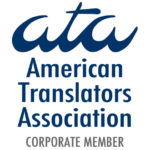Sometimes even seasoned, professional translators come up short in the hunt for a tricky term. Here are five resources available on the Internet where you can search for translations of terms or discuss terminology with fellow translators. Remember: Seek, and ye shall find.
ProZ.com offers a searchable database of personal glossaries and an archive of questions previously posed by fellow translators. If your search there yields no clues, take advantage of KudoZ, a forum that allows you to pose a question to colleagues in your language pair who can lend a helping hand when the proper translation of a term seems to elude you.
In addition to this site’s extensive dictionary offerings, WordReference also features an excellent forum that translators can turn to with questions. The forums there are quite active, but if an answer doesn’t seem forthcoming, the moderators often chime in and help.
With a similar set-up to that of ProZ.com, TranslatorsCafé provides a forum for translators to discuss challenging terminology with colleagues. TCTerms allows you to take advantage of collective wisdom when you’re really feeling stumped.
Although Linguee lacks the interactive/conversational features of the other sites, it’s still a valuable term-search resource for translators. Linguee, the combination of a dictionary and translation search engine, hunts for a match to your query from among assorted texts culled from professionally translated websites and sources in the public domain such as EU documents and patent specifications. Unlike the results provided by a machine translation tool such as Google Translate, every entry that appears in the Linguee dictionary has been translated by humans.
Sometimes contributors can be slow to respond in a translation-specific forum, which is why Twitter can be a valuable resource when you’re in a real pinch. Thousands of translators participate in the conversation on Twitter, so if you’ve taken the time to get to know some of them, you can pose questions to colleagues and receive responses, sometimes in mere seconds!



